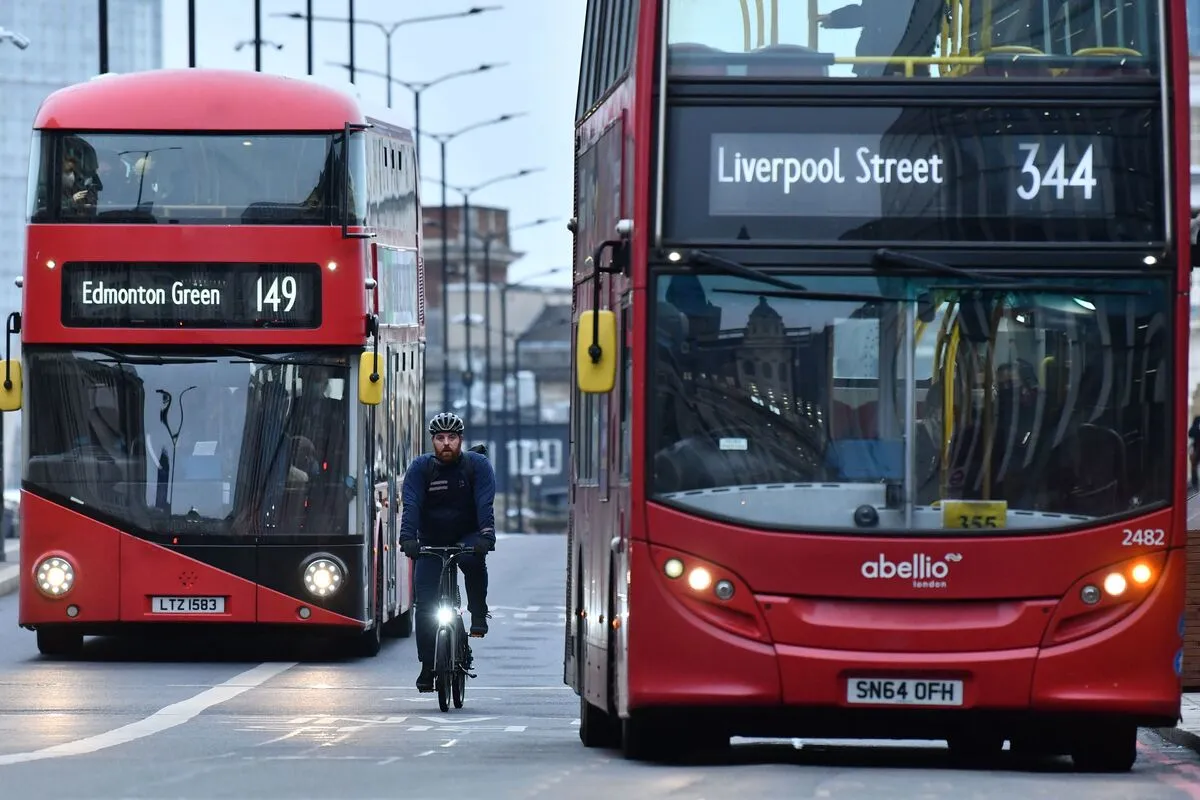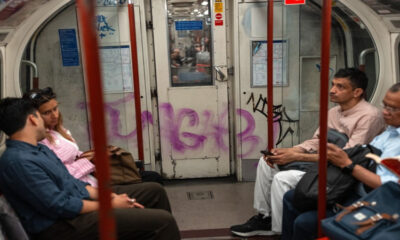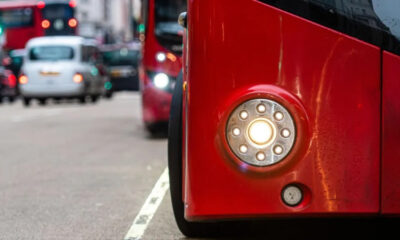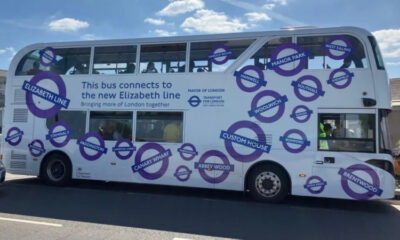Business
London Buses Charge Fares Based on Hashtag Popularity

Trending routes only.
By Emily Carter – Lifestyle & Satire Blogger
From Oyster to Online Trends
London’s double-decker buses are iconic. Tourists pose on the top deck, commuters snooze on the lower, and drivers navigate impossible traffic. But according to viral rumours, Transport for London has changed how fares are calculated. Instead of flat prices, bus rides are now allegedly priced by hashtag popularity. The more a route trends on social media, the higher the fare climbs.
A TikTok clip that fuelled the story showed a screen flashing: “#Route25 trending, fare surge +15%.” The caption read: “Mind the trend.”
Commuters in Confusion
Clips spread across Instagram of baffled passengers. One student said, “I can’t afford my commute, #BakerStreet blew up overnight.” Another reel showed tourists chanting “Stop tweeting!” while trying to keep fares down.
Street artists jumped into the chaos. A graffiti stencil appeared near Shoreditch with the phrase: “This bus accepts retweets only.”
Fake or Real?
Polls revealed 54 percent believed the rumour. “Feels real,” one voter said. “London already charges ridiculous fares.” Another argued, “Fake, but believable. TfL loves gimmicks.”
That blend of plausibility and parody made hashtags like #BusCoin and #FareFi trend on Twitter and TikTok.
Meme Avalanche
Memes sped across feeds like buses through bus lanes. One viral edit showed red double-deckers covered in QR codes. Another depicted Oyster cards glowing with Instagram hearts instead of balances.
Parody slogans included:
- “Stake your seats.”
- “Proof of trend confirmed.”
- “Ride volatility.”
Camden Market quickly sold mugs stamped with “I paid in hashtags.”
Top Comments from the Internet
- “Finally, buses are more volatile than Bitcoin.”
- “My commute was ruined by memes.”
- “Proof of fare validated.”
TfL Responds
TfL officially denied the rumour, claiming fares remain standard. But parody press releases filled the gap. One fake statement read: “Consensus required for boarding.” Another declared, “Routes priced by cultural relevance.”
Even politicians joined the satire. One MP tweeted, “At least buses are trending, unlike me.”
Why It Resonates
The rumour resonates because public transport already feels unpredictable. Prices rise, strikes occur, and commuters adapt daily. Tying fares to hashtags mocks a system where costs already seem arbitrary.
An LSE sociologist quipped, “Bus fares priced by trends are satire that works because public services already behave like algorithms opaque, erratic, and beyond our control.” The line itself was memed with double-decker gifs.
Satirical Vision of the Future
Imagine all of London’s infrastructure priced by trends. Tube tickets are surging when TikTok posts go viral. Black cabs require meme verification. Even Boris Bikes are rented by engagement metrics.
A parody TikTok circulates showing passengers begging influencers to stop posting about their route. Caption: “My rent is cheaper than my bus fare.” The video gained half a million views in two days.
Passenger Reactions
Commuters turned frustration into laughter. One student tweeted, “My #Stratford commute is now luxury travel.” Another TikTok showed office workers celebrating when their route fell out of trend and fares dropped.
By Sunday, parody posters appeared at bus stops reading “Trending surcharge applies.” Tourists posed for selfies beneath them.
The Bigger Picture
Behind the humour lies a critique of public services. Londoners already feel fleeced by rising fares and unreliable schedules. Meme-pricing parodies that reality, highlighting how public infrastructure can feel more speculative than financial markets.
Cultural critics argue the rumour’s popularity reflects distrust in both social media and institutions. If online trends already shape culture, why not bus fares too?
Conclusion
Whether London buses really charge fares based on hashtags doesn’t matter. The rumour has already gone viral in Britain’s meme economy, turning everyday commutes into speculative journeys.
So the next time you tap in, don’t just carry your Oyster. Carry your engagement. Because in 2025, your ride might depend on what’s trending.
By Emily Carter – Lifestyle & Satire Blogger
emily.carter@londonews.com






















